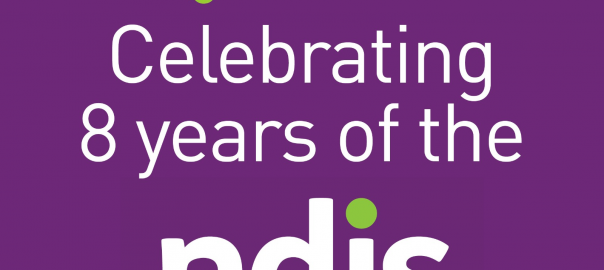RECOGNISING THE EIGHTH ANNIVERSARY OF THE NDIS

July 2021 marks eight years of the National Disability Insurance Scheme (NDIS).
This world-first insurance Scheme has changed the lives of more than 450,000 Australians with disability.
Eight years on there are now 3,711 NDIS participants in Barker benefiting from the Scheme.
The NDIS was born from a grassroots campaign, backed by thousands of Australians. Introducing a national approach to disability support, so that people could be more independent and participate fully in their chosen communities.
The disability sector has grown from $8 billion per year across the sector in 2015-16 to $23 billion in 2020-21 on the NDIS alone.
The NDIS is providing support to more than 260,000 Australians who’d never previously received supports prior to the NDIS.
Member for Barker Tony Pasin said with 3,711 participants in Barker now receiving support, the eighth anniversary marked significant progress for the local community.
“I’ve seen and heard how the NDIS is changing lives – for participants and for their families”, Mr Pasin said.
“As the scheme reaches maturity, our focus is on ensuring its sustainability and that it continues to deliver the high-quality services that Australians with a disability and their families rely on.”
“The NDIS is the result of a collective goal and hard work from so many people it’s fantastic to see the difference it’s made to the lives of Australians with disability, especially here in Barker.” Mr Pasin said.
Now, as we enter the Scheme’s ninth year, the Morrison Government is working on reforms to deliver improvements. For a better, fairer, simpler and more flexible NDIS that’s affordable and will be in place for years to come.
END
Key highlights of the NDIS to 31 March 2021:
- More than $21.7b in funding provided to Australians with disability to access the supports they need, in the 12 months to 31 March 2021.
- 70,745 children in the 0-6 age group were being supported by the NDIS as at 31 March 2021.
- Participants from diverse backgrounds are in the Scheme at increasing rates:
- 6.8% of participants are from Aboriginal and Torres Strait Islander background (up from 5.9% two years ago)
- 1.5% of participants are from remote and very remote areas (up from 1.2% two years ago).
- Participants formerly in residential aged care are being supported to move into alternative accommodation. Admissions to aged care for those aged under 65 has reduced by 68% in three years.
- Participants entering from State/Territory systems are receiving 50% more funded supports (on average) than before they transferred to the NDIS.








